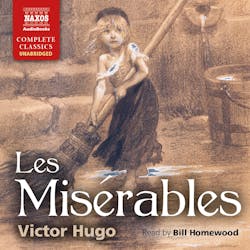In 'William Shakespeare', Victor Hugo explores the pantheon of literary greats with a focus that extends far beyond the titular Bard of Avon. As a work of literary criticism penned during his lengthy exile in 1864, Hugo delves into the essence of what constitutes genius in literature, drawing comparisons and establishing a hierarchy with Shakespeare as a fulcrum. The book is expansive, dissecting varied aspects of writing and dramaturgy, all encapsulated within Hugo's trademark Romantic style. Initially conceived as a mere introduction to his son's translations of Shakespeare's works, it blossomed into a comprehensive 300-page treatise that firmly took its place in literary discussions of the time, becoming a separate entity necessitating its own introduction for the plays it preceded.
Victor Hugo, a titan of French literature, was entrenched in his 13th year of political exile when he wrote this profound homage to literary genius. His involuntary retreat from France had fuelled a prolific period of creativity, and Hugo's fervent advocacy for artistic freedom is palpable throughout the text. The work's evolution from preface to standalone volume reflects Hugo's inexhaustible passion for literature and his belief in its transformative power—a testament to the intellectual zeal that defined him as a vanguard of the Romantic movement.
Recommended for scholars and enthusiasts of literary criticism alike, 'William Shakespeare' offers not just an in-depth analysis of the literary landscape of Hugo's time, but also a timeless reflection on the nature of creative brilliance. It is Hugo's ruminations on those he deems 'the greatest geniuses of all time' that elevate this work to a critical must-read, providing valuable insights into the minds that have shaped the cultural and intellectual fabric of the world. Engrossing and provocative, this book stands as a beacon of Hugo's enduring legacy and his veneration for the transcendent power of literature.












